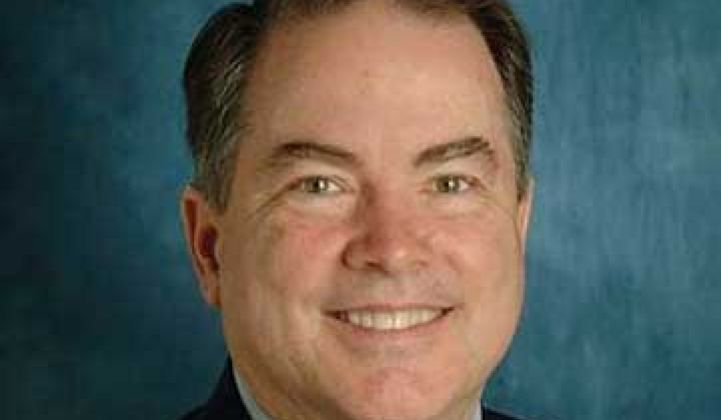Despite tens of millions of smart meters being deployed in the U.S. and distribution automation projects happening across the country, building the business case for smart grid is an enigma for many utilities -- but not for Paul De Martini.
Just over a year and a half ago, De Martini joined Cisco as Chief Technology Officer. At the time, he had left his position as VP of Advanced Technology at Southern California Edison. The move was part of a larger trend of companies looking to scoop up utility executives to help make strategic decisions about how to position the company in the smart grid space.
Fast forward to 2012, and De Martini is on the move again, this time to a new consulting firm, Newport Consulting Group. He will continue to work with Cisco on a contracted basis in the area of gridonomics, Cisco’s smart grid business architecture framework.
In some ways, he is taking the gridonomics show on the road. The consulting firm is working with companies like Power Assure and Tendril, but will also help utility clients work through business model issues. Although helping utilities with their business architecture for smart grid was part of his work at Cisco, De Martini says, “I can do that more directly as a consultant to the industry.” He continued, “We can address some of the issues that haven’t been moving forward.”
Tackling the business case for smart grid has become big business. Not only does Cisco have gridonomics, but IBM has dedicated itself to helping utility clients understand the entire business value of smart grid -- rather than just the cost-benefit of certain technologies. “Smart grid is 90 percent change in management and 10 percent technology,” said Kieran McLoughlin, IUN Network Automation & Analytics Solution Leader at IBM Global.
De Martini also knows that changing the culture and organization of a utility is key to its smart grid success. “It requires a fair amount of organizational change,” he said. “How do you think about the progression to get the full set of benefits?”
It’s not a basic question. While consultants and networking giants are attacking the problem, no one has come up with a surefire answer. Every utility is different, but there should be some underlying commonalities and reference points to help utilities use smart grid technologies to transform their businesses.
Those baselines are coming, said De Martini. He expects that 2012 will be the year of the quality case study and that there will start to be some major lessons learned that can be extrapolated from operational data.
Although some very large companies offer services to build business cases, De Martini sees the need for more tailored attention. He said that the entire mindset of how utility staff (and regulators) look at cost models doesn’t necessarily work for the disruptive technologies that are becoming available.
Utilities need to think about wider platforms so that different silos, from T&D down to customer operations, can be integrated together. “There’s a conservatism about signing up to realize the benefits [of new technology],” said De Martini. “Transforming from a vertical to a horizontal approach is challenging.”
Cisco has not announced a replacement for De Martini, and he will still be working with Cisco in some capacity. “Paul De Martini has been a valuable member of Cisco’s energy team since he came to the company,” said Jennifer Dunn, spokeswoman for Cisco. “His utility background has proven very valuable as Cisco has significantly grown its presence in the smart grid market, developed new solutions for utilities, and engaged with governments and customers in our vision for energy transformation.”
In the time De Martini was at Cisco, the company landed the BC Hydro smart grid project and fleshed out its end-to-end IP smart meter architecture, which Cisco argues allows for a more seamless 'internet of things' compared to the proprietary mesh networks that competitors are offering.
Although there has been a lot of talk about building a better case for smart grid, this is the year when it will actually happen, said De Martini. “This year is the year we lay down the economic and technical foundation so we say, ‘This is what we know works.’”



